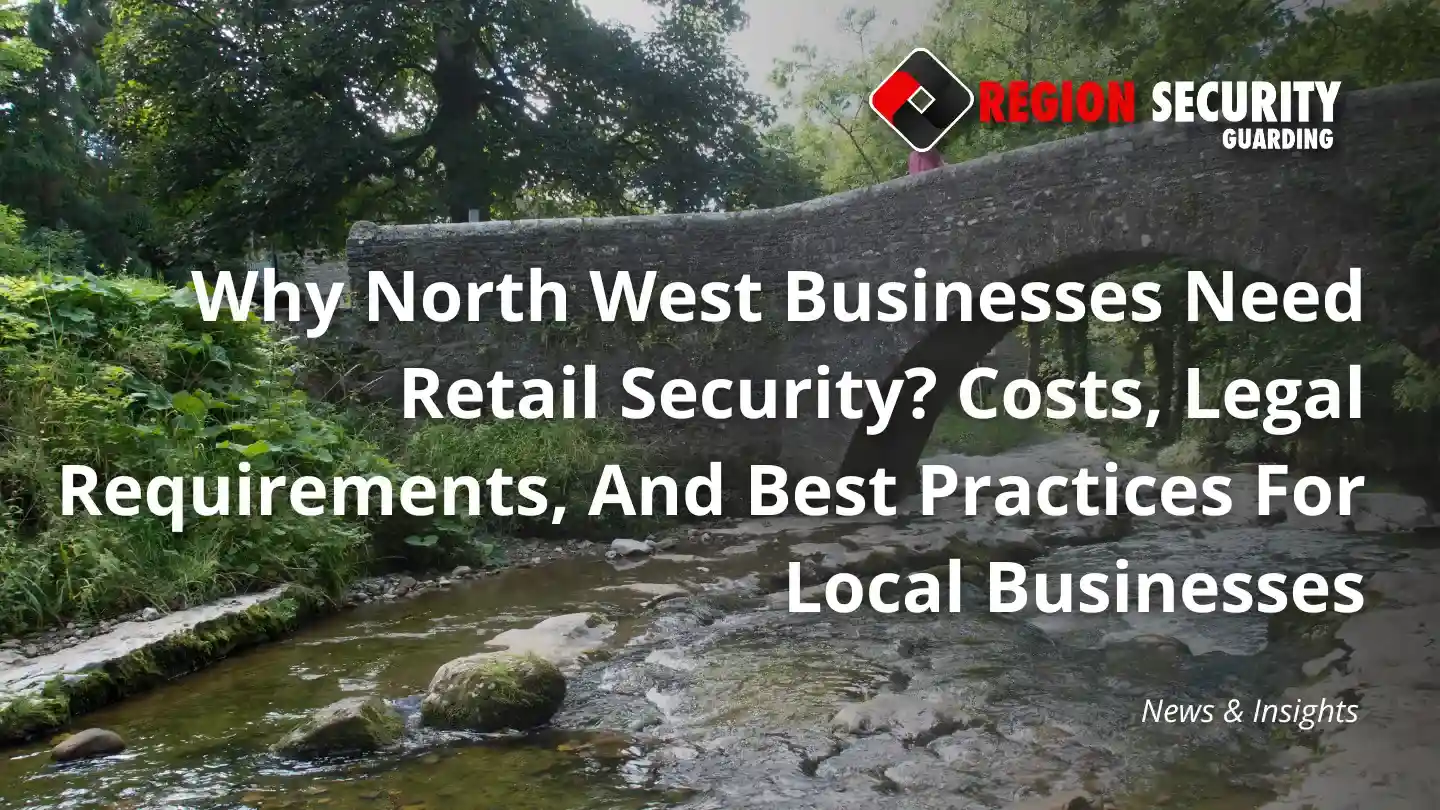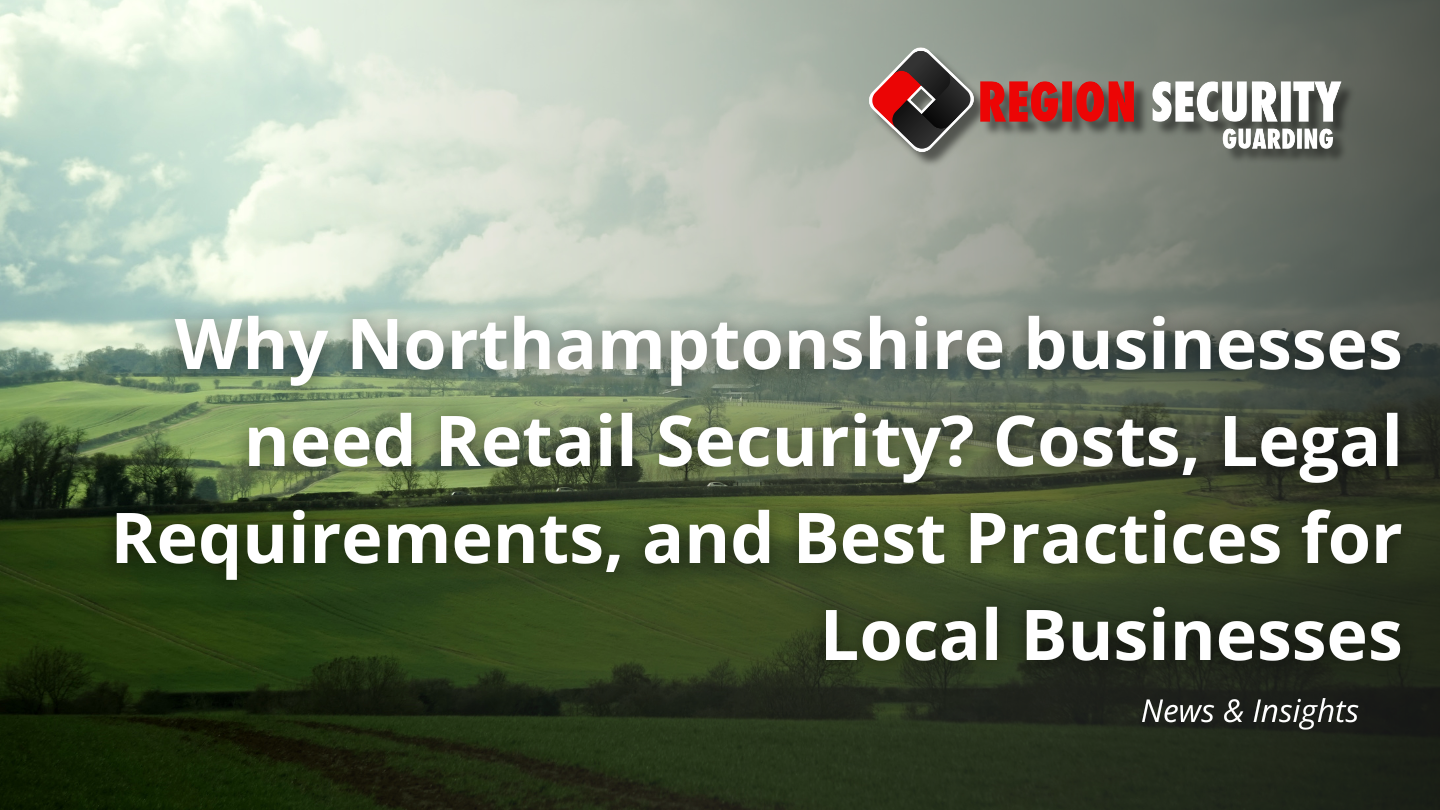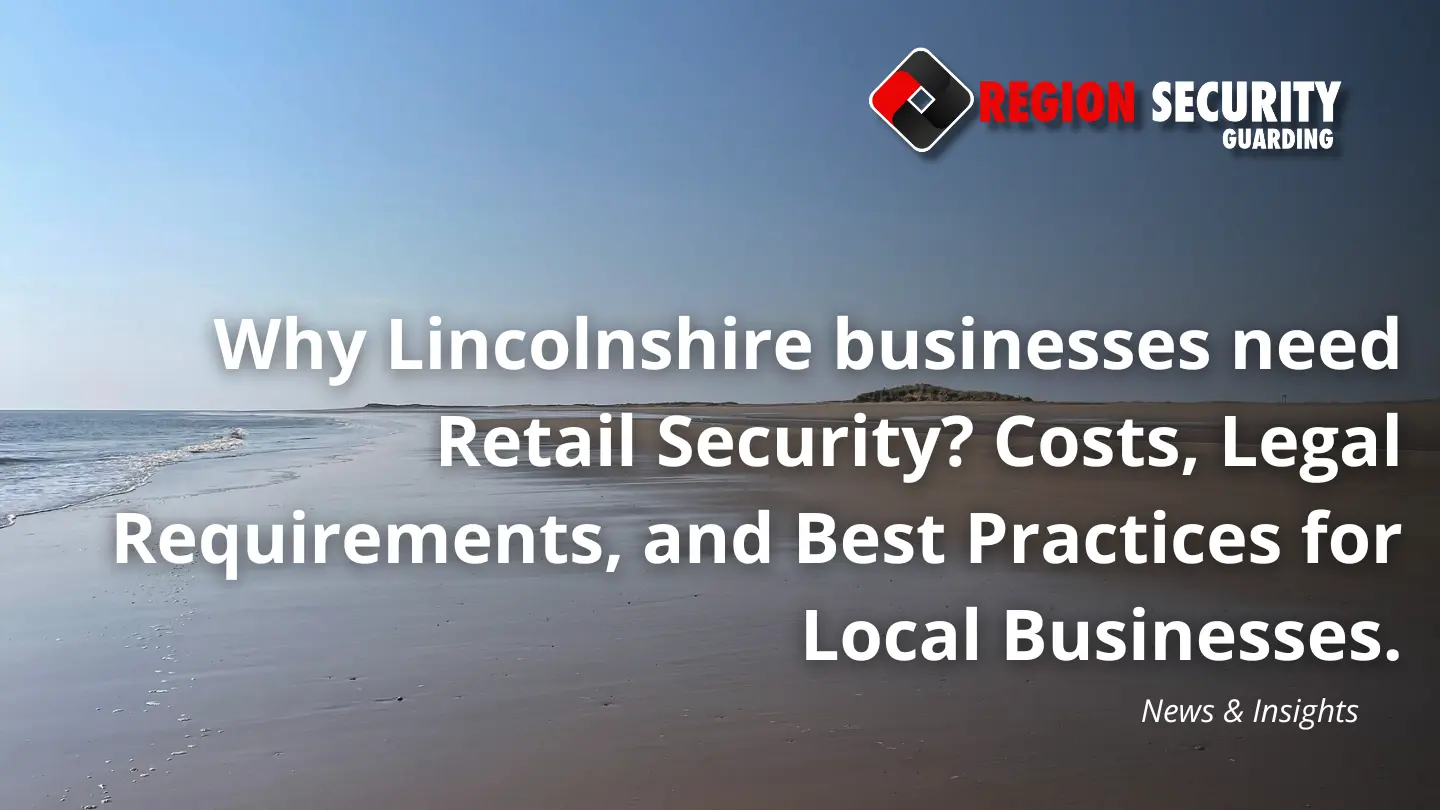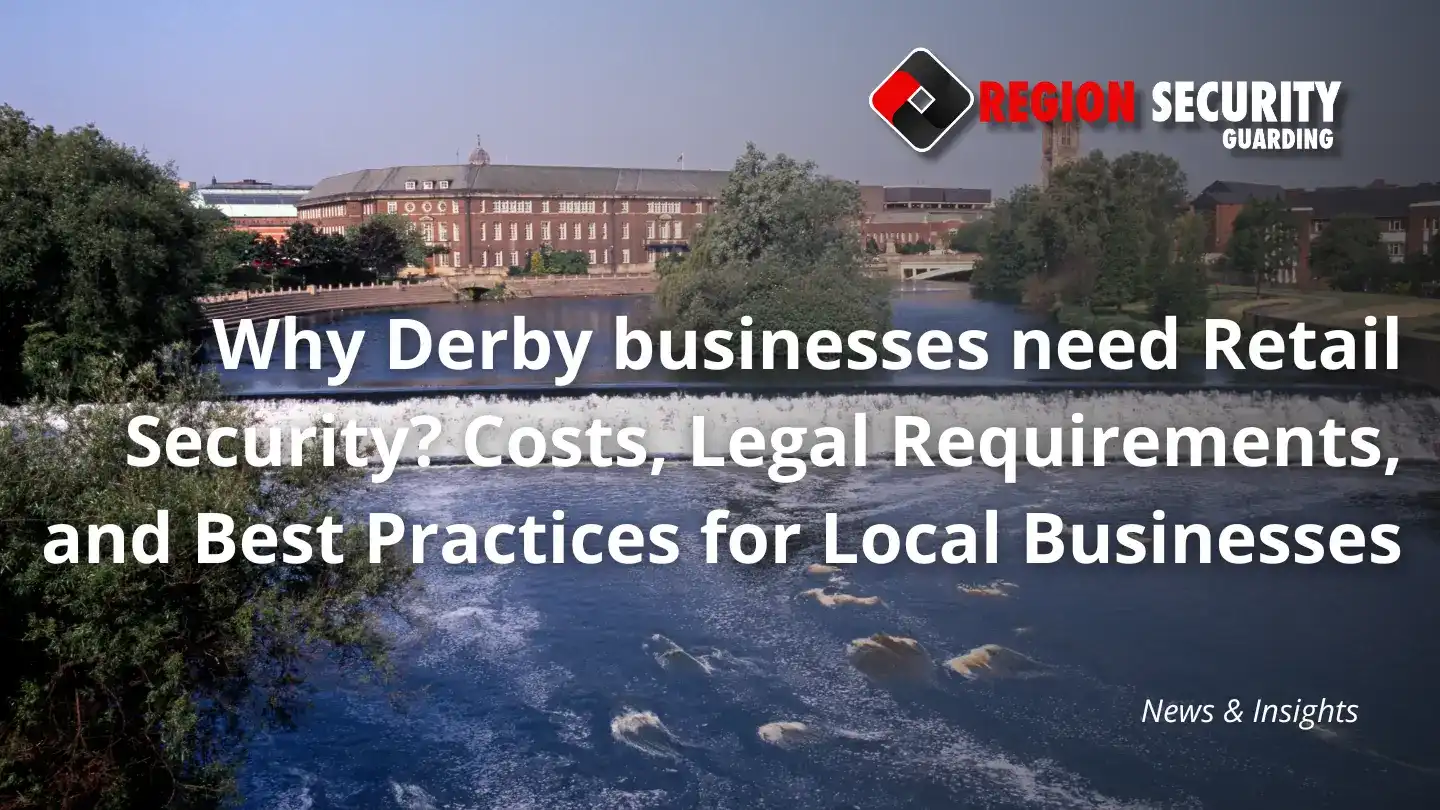Mental Health Awareness Week 2025 brings with it a powerful theme: community. In many industries, community might mean shared office lunches or team-building days. But when it comes to mental health in security, where long shifts, lone working, and high-pressure situations are the norm, community takes on a much deeper meaning.
For those working on the front line , whether it’s patrolling a retail site alone at night or overseeing crowd control during a tense event, the sense of being part of a team can feel distant. And yet, it’s precisely in these moments that connection matters most.
Community isn’t just a nice-to-have. It’s a vital protective factor for mental health. When people feel supported, seen, and part of something bigger, they’re better able to manage stress, bounce back from difficult incidents, and enjoy their work. For those of us in the security industry, building that kind of environment is both a responsibility and an opportunity.
This week at Region Security Guarding, we’re reflecting on how we can strengthen the bonds between our team members, wherever they’re working, and whatever challenges they’re facing.
Table of Contents
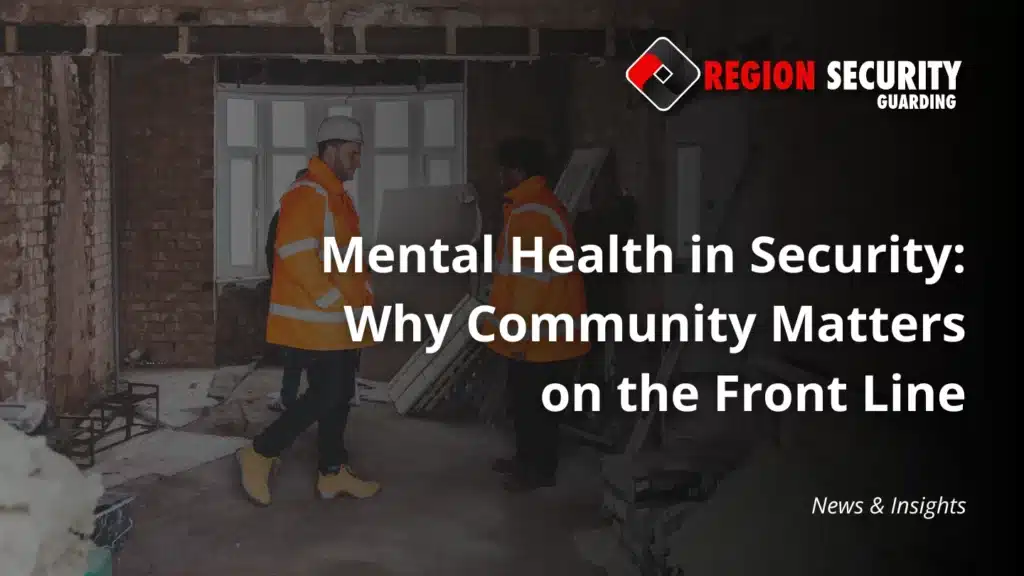
The Pressures of the Job – Mental Health in the Security Industry
Working in security comes with a unique set of pressures that aren’t always obvious from the outside. While the role often centres on keeping others safe, it can sometimes come at the cost of our own wellbeing.
Lone working is one of the biggest challenges to mental health in security roles. Many security professionals spend entire shifts without direct interaction with a colleague, especially those guarding static sites, construction zones, or car parks. Over time, this lack of day-to-day connection can lead to feelings of isolation, particularly during night shifts or in high-risk areas where vigilance must remain high.
Then there’s the emotional strain. Security officers are regularly exposed to conflict, confrontation, and in some cases, trauma. Whether it’s dealing with aggressive behaviour, preventing theft, or managing emergencies, these experiences can build up silently, especially if there’s no outlet to talk them through.
Despite this, there’s still a lingering belief in some corners of the industry that mental health should be kept quiet, that ‘toughness’ means dealing with everything alone. But real resilience isn’t about bottling things up. It’s about knowing when to reach out, and having people around you who understand what you’re facing.
That’s where community makes all the difference.
The Power of Community in a Solitary Job
Community might seem like a strange concept in a role that often involves working alone. But in security, community doesn’t just mean being physically present with others, it means knowing you’re part of something, even when you’re on your own.
A strong sense of community can make the job feel less isolating and more purposeful. It creates an environment where people look out for each other, share advice, and feel confident asking for help. That might be a quick message from a supervisor to check how someone’s doing, a colleague offering to swap a shift when someone’s struggling, or just the knowledge that your efforts are seen and appreciated.
Community builds morale. It boosts confidence. And it provides emotional protection, particularly after a difficult shift or a challenging incident. For those working in the industry, it’s a powerful way to support mental health in security, making tough days a little easier to manage.
When guards feel like they belong to a team rather than just filling a rota slot, it shows. Not just in their mental health, but in how they carry themselves on site, how they handle conflict, and how committed they feel to the job.
Even for those working independently, a culture of connection, backed by good communication and visible leadership, can make the difference between coping and burning out.
Our Commitment to Community at Region Security Guarding
At Region Security Guarding we believe that no one in our team should feel like they’re facing things alone. Building a sense of community isn’t just a nice idea. It’s part of how we look after our people and ensure they’re able to do their best work.
That starts with staying connected. Our supervisors check in regularly with guards across different sites, not just to discuss shift details, but to ask how things are going on a personal level. A simple message or call can go a long way, especially after a long night or a tough situation.
We’ve also set up informal group chats for different teams, giving staff a way to stay in touch, share updates, or even just post something light-hearted after a busy shift. These might seem like small things, but they help build trust and familiarity between people who may never share a shift in person. And when it comes to supporting mental health in security, that sense of connection makes a real difference.
Whenever we can, we bring staff together, whether that’s through training sessions, team meetings, or informal social events. These gatherings give people a chance to put faces to names and remind everyone that they’re part of something bigger.
We’re also proud to be developing our approach to mental health support. From raising awareness to signposting professional resources, we want every team member to know that it’s okay to speak up, and that someone will listen.
Building Micro-Communities – Small Steps That Matter
Community doesn’t always have to come from the top down. Often, it’s the small, everyday actions between colleagues that create the strongest sense of belonging.
A quick call at the end of a shift to check in. A message wishing someone well before a long night. Sharing a laugh on a team chat. These might seem like minor gestures, but they can have a big impact on someone’s mood, mindset, and motivation. They can help reinforce positive mental health in security settings.
Supervisors and team leaders can play a big part too. Taking five minutes to ask how someone’s doing, properly, not just as a formality, builds trust. Noticing when someone seems quieter than usual. Encouraging small moments of recognition: ‘Good job today,’ or ‘I know that was a tough shift.’
We also encourage our teams to look out for one another, whether that’s helping a new starter settle in, sharing advice from experience, or simply checking if someone’s eaten during a long day.
These small connections form the foundation of a healthier, more resilient team. And when people feel connected, they’re more likely to speak up, support each other, and stick around.
Final Word: Stronger Together
Mental Health Awareness Week is a reminder of something we should carry with us all year round: the importance of connection. In the security industry, where the demands are high and the risks are real, community isn’t just a feel-good concept, it’s a lifeline.
At Region, we’re proud of the work our teams do every day. But we’re just as proud of the way they support each other: quietly, consistently, and with care. Because when we commit to building a culture of connection, we create safer, healthier, and more human workplaces.
So, whether you’re on shift today or leading from the office, take a moment to check in with someone. Start a conversation. Say thank you. Remind a colleague they’re not on their own. Small actions like these can make a real difference to mental wellbeing in the security industry.
Because in this line of work, strength doesn’t come from standing alone. It comes from standing together.

